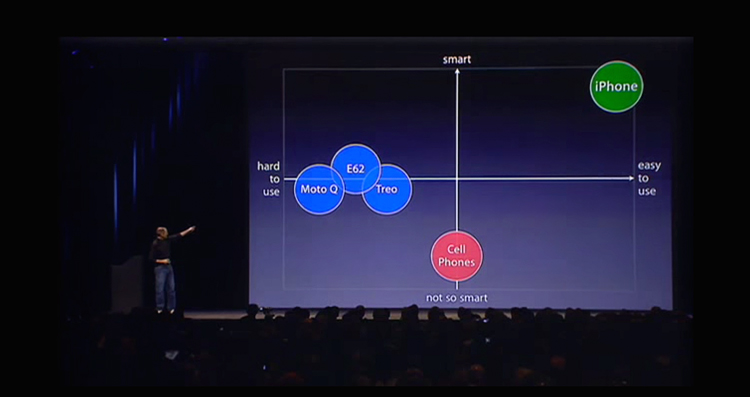Along these lines, the “Today” screen of iOS, which currently displays things like the weather, upcoming calendar events and news stories that Apple thinks I might be interested in, should be updated to include individually tailored suggestions related to health and fitness. For example, based on data from my next-gen Apple wearable—which I’d be able to wear while sleeping to track sleep quality—combined with my health history and my calendar, my phone might advise me to switch my run to the morning instead of my typical afternoon slot in order to maximize productivity for the day.
Here’s another scenario that would help improve my life: Knowing, based on my calendar or the travel itineraries I’ve received via email, that I have a trip to Japan coming up in two weeks, the Health app could offer me a revised sleep schedule that incrementally acclimatizes me to that new time zone. This wouldn’t be a cookie-cutter plan—instead, it would be tailored specifically to my needs based on my historical sleep and health data. If I were to accept the suggestion, the phone would automatically edit my “do not disturb” and alarm settings, eliminating the need for any manual interventions on my part. The net result would be a dramatic reduction in my jet lag while on the ground in Japan, enabling a much more productive and enjoyable trip.
The bottom line here is that hardware is only one piece of the puzzle. Whereas Apple currently appears to be devoting about 80% of their efforts in the health space towards hardware and 20% towards software (and that’s a generous assessment), I believe that split needs to be closer to 50/50 in order to unlock the sort of world-changing potential that Tim Cook talks about.
Conclusion
Wow, if you’ve made it this far, I’m impressed—thanks for sticking with me! If you’re wondering why in the world I put so much energy into a piece that has a snowball’s chance in hell of getting in front of anyone at Apple who might actually read it and be in a position to effect change, it’s because I agree with Tim Cook that health is a critical global issue and that Apple is uniquely positioned to make a meaningful dent in the problem.
A landmark 2005 report published in the New England Journal of Medicine found that “After remaining relatively stable in the 1960s and 1970s, the prevalence of obesity among adults in the United States increased by approximately 50 percent per decade throughout the 1980s and 1990s,” such that “Two thirds of adults in the United States today are obese or overweight.” In an interview with the NY Times, one of the report’s authors spoke to the potential consequences:
“Obesity is such that this generation of children could be the first basically in the history of the United States to live less healthful and shorter lives than their parents,” said Dr. David S. Ludwig, director of the obesity program at Children’s Hospital Boston, and one of the authors of the report … “We’re in the quiet before the storm,” Dr. Ludwig said. “It’s like what happens if suddenly a massive number of young children started chain smoking. At first you wouldn’t see much public health impact.” He added, “But years later it would translate into emphysema, heart disease and cancer.”
Aside from the negative impacts on the well-being of affected individuals and their loved ones, obesity is also hurting the U.S. economy, according to a 2015 report from Bloomberg Businessweek. The magazine cites research from Cornell University economics professor John Cawley, indicating that “obesity raised medical-care costs by $315.8 billion in 2010,” an inflation adjusted increase of 48 percent compared to 2005. And, lest you think that burden falls only on those who are obese, according to Cawley, “the costs are usually paid by private and public health insurance, meaning that leaner people are subsidizing those with less healthy diets.” In other words, “All of us are paying these costs."
And while this crisis is particularly acute in the West in general and the United States in particular, it is increasingly a global issue. According to the World Health Organization, “worldwide obesity has more than doubled since 1980” and, today, “overweight and obesity are linked to more deaths worldwide than underweight.”
The maddening thing about this is that, as the WHO rather dryly notes, “Overweight and obesity, as well as their related noncommunicable diseases, are largely preventable.” I don’t believe that wearable, activity tracking tech is the panacea for this pandemic, but I’ve read and heard enough accounts like Dalrymple’s to be convinced that it can be a significant part of the solution.
Speaking of solutions, the WHO’s recommendation to governments is quite simple: “make regular physical activity and healthier dietary choices available, affordable and easily accessible to everyone, particularly to the poorest individuals.” To me, this should become the mantra adopted by the Apple Watch team: Stop trying to make a next-generation watch, and focus instead on creating a next-generation activity tracker—Health app included—that’s “available, affordable and easily accessible to everyone,” and doesn’t just surface data but provides ongoing, individually tailored coaching that helps its users lead healthier, more productive lives.
Various companies have the chops to tackle parts of this enigma, which is equal parts tech and human behavior. Google comes to mind most immediately given their deep capabilities in cloud services and artificial intelligence, as does Facebook for their expertise in social influence, but I believe only Apple has the blend of engineering prowess and appreciation for the humanities—the intersection of technology and the liberal arts that Steve Jobs often emphasized—necessary to pull this off at scale. To do so, however, the company will need to “think different” about their approach to Apple Watch. For all our sakes, here’s to hoping they find the courage to start fresh and truly confront the most significant global health challenge of our time.
Agree? Disagree? Have questions? Let’s continue the conversation on Twitter @edotkim.

















